Jelena Dokic: ‘I haven’t spoken to my abusive father in 10 years – I sleep well at night’
The former Australian tennis prodigy speaks to Kieran Jackson about a life reborn after losing ties with her ‘tennis father from hell’, her empathy for Emma Raducanu – and hitting back against the online haters

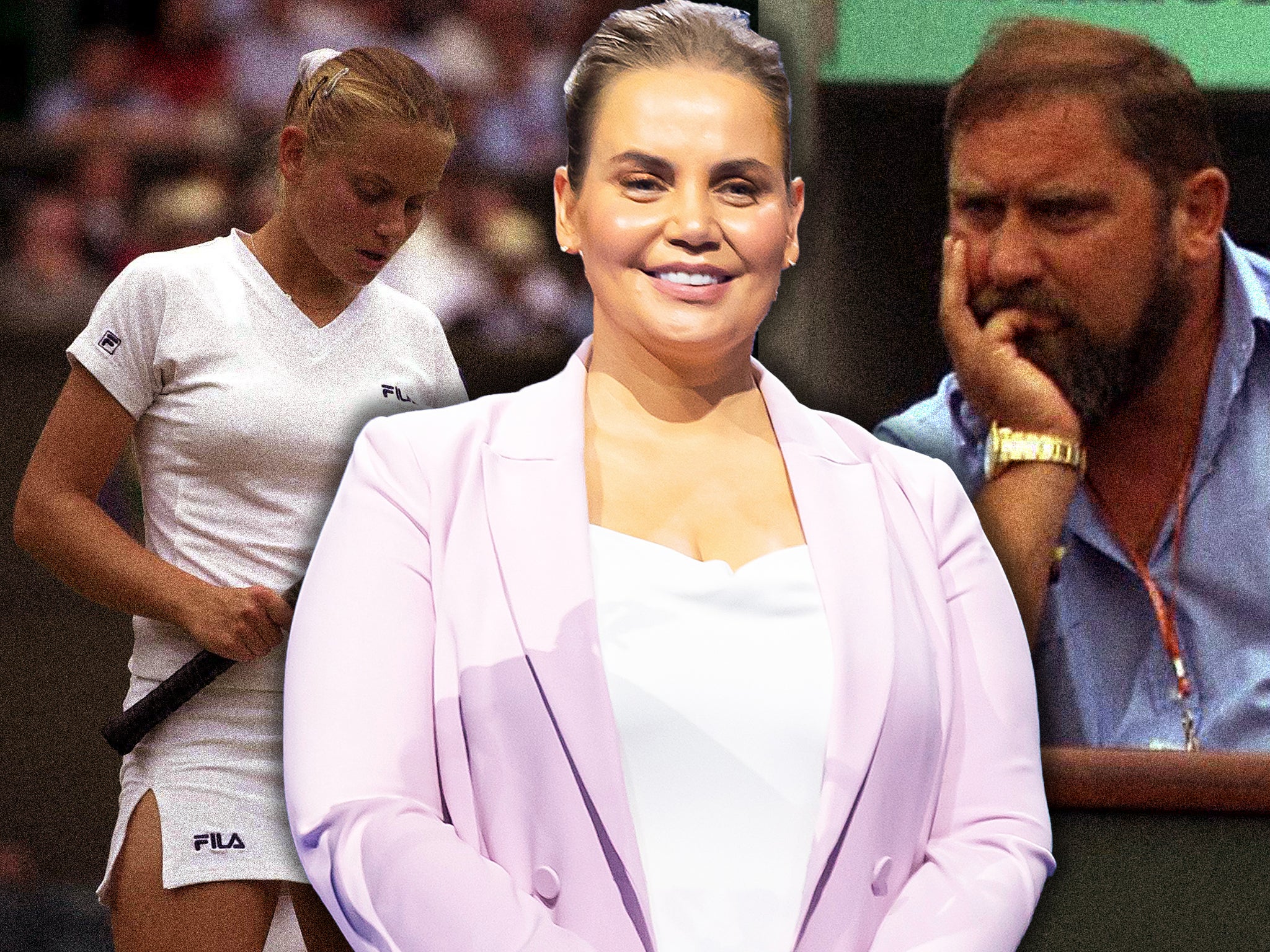
Unleashed after a life unparalleled, Jelena Dokic simply refuses to hold back anymore. Contrary to an upbringing shackled up, the sharp focus of her father’s violent regime of tennis parenting, the former Australian prodigy is at peace: with tennis, with society and with her own mind.
“I’m the happiest I’ve ever been and I can really say that with confidence,” Dokic says, her freedom radiating. “I will not be defeated by my past. I’ve been able to turn all the pain and suffering into something extremely positive. My biggest strength is my vulnerability.”
If you don’t know her story, here’s a reminder: Dokic, a refugee from war-torn Serbia in the 1990s, burst onto the international tennis scene at 15 years of age, representing Australia after moving down under. Her results stunned and her ranking skyrocketed, with deep runs at Wimbledon catapulting the teenager briskly into the public eye at the turn of the century. But behind the new darling of the tennis world was a darkness in the shadows.
Subjected to years of physical and emotional abuse, a career of such promise on the court was derailed by drama and viciousness off it. Sometimes she was beaten with a belt and lost consciousness. Sometimes she was made to stand still for hours on end. Sometimes she was berated as a ‘hopeless cow, a dirty b****, a w****’. A far cry from the relative tranquillity of her life in the present, Dokic now talks about her story for over an hour from her apartment in Melbourne with commendable rawness and honesty.
Even if she has not made peace with the abuser: her father, Damir Dokic. A man dubbed the “tennis father from hell” by sections of the media.
“I sleep well at night,” she says. “I don’t speak to him, 10 years ago was the last time. I tried to reconcile but it’s hard when he can’t even say sorry. I hoped he would change, but it wasn’t possible and I think at some stage, even if it’s family, you have to let it go and say, ‘That’s too toxic for me.’ That’s what I did – and the day I did that made me very happy.
“My father always said to me ‘Don’t dare say anything, stay silent or I will kill you.’ Silence is golden. I think with society and sport, it’s often about being a perfect human being but we forget that life is not perfect. I want to change the perception that vulnerability is a weakness – you have no idea how much strength it takes to be vulnerable. It takes courage, especially with the world watching.”
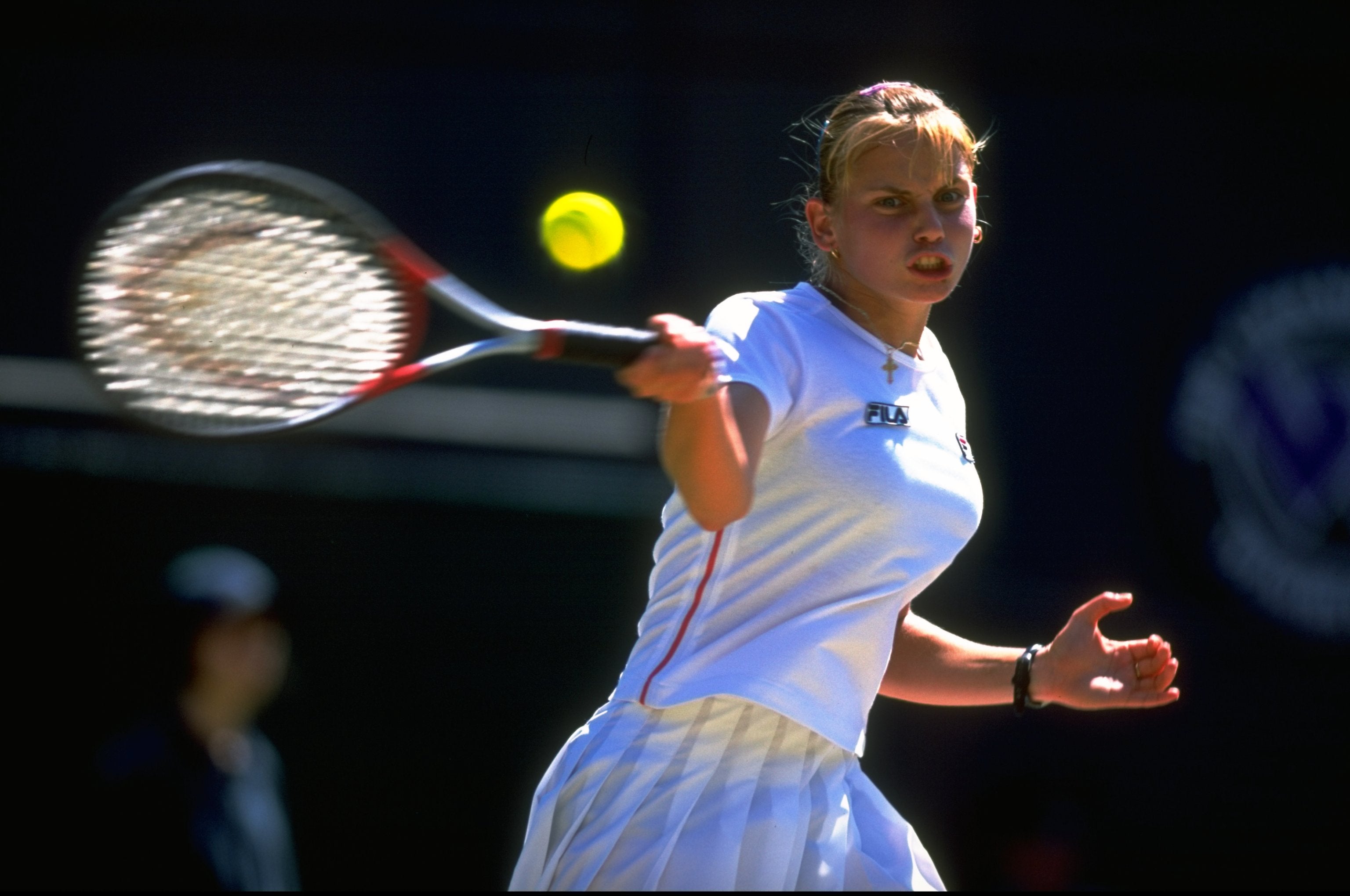
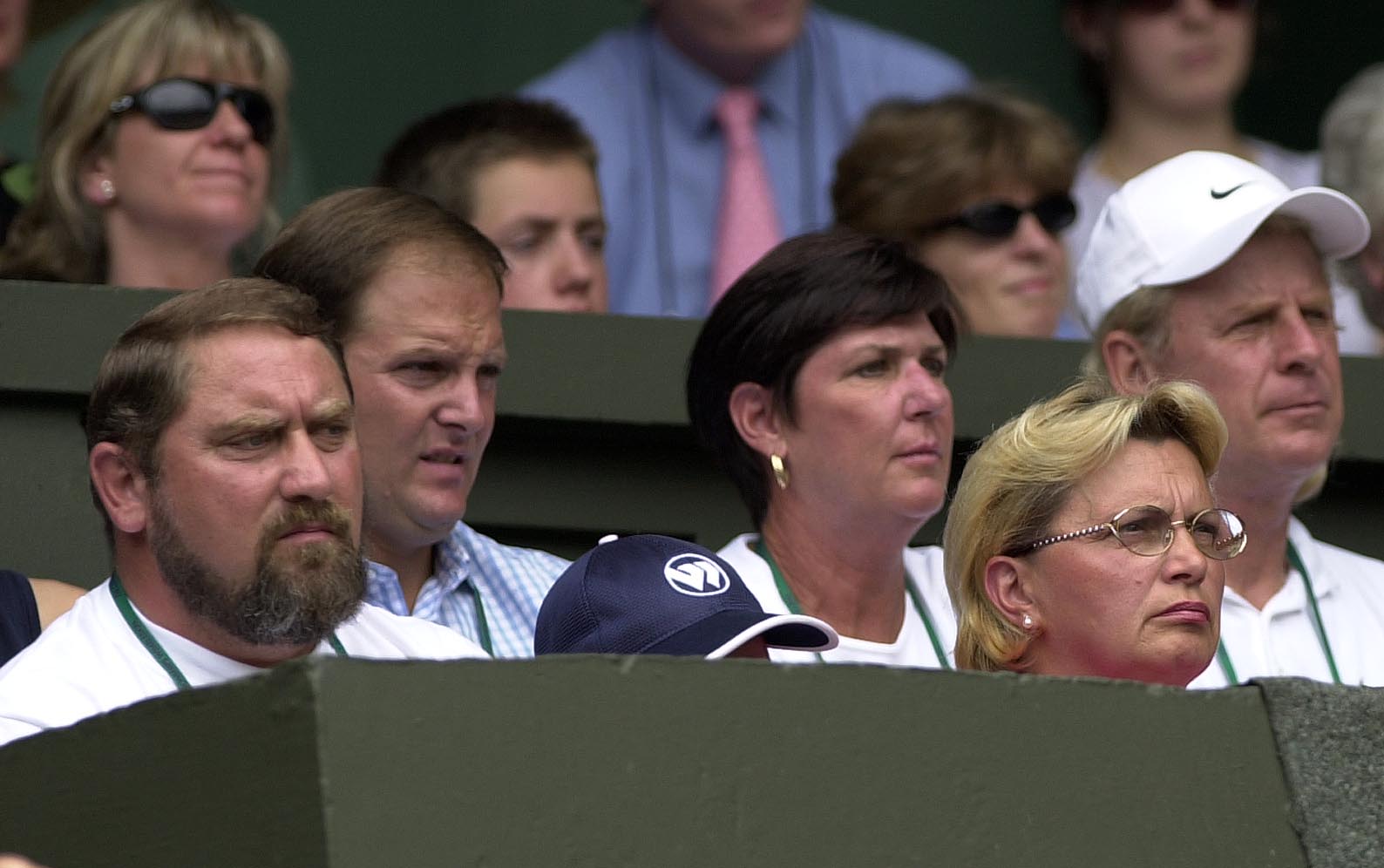
The statistics show that the average victim of child abuse takes 24 years to reveal their suffering. Following retirement and the telling of her distressing story in her 2017 book Unbreakable – which gave Dokic the “happiest day of her life” – the 40-year-old is now a successful tennis commentator for Channel 9 in Australia. She has given more than 150 motivational speeches this year and, in the last month, gave her first TEDx talk. In her own words, Dokic now has a life filled with “joy and happiness”.
However, most conspicuously, she wants to make a difference. A video that went viral last year of a 14-year-old Chinese player being beaten and kicked by her father was widely condemned by the tennis community. That instance was caught on camera, but who knows how many cases are not. In other sports, high-profile cases of child abuse in gymnastics and swimming have recently been uncovered.
“I think my experience can change things,” Dokic says. “I never smiled in the first 33 years of my life. This is what abuse does but finding your power and voice changes that. Truth-telling is how you take control.
I want to change the perception that vulnerability is a weakness – you have no idea how much strength it takes to be vulnerable.
“I don’t think we can eliminate abuse altogether in sport or in life. I always say in sports like tennis, where there is so much fame and money at stake, it’s going to create monsters out of parents and coaches.
“But I want to change the stigma we put on victims and survivors – it should be about holding accountable the perpetrators. We can’t do that without a safe space and environment.”
It explains why Dokic is so authentic with her output, both in person and on social media. In recent years, her rise to becoming one of Australia’s most prominent tennis analysts has coincided with difficulties away from the sport: body-shaming, suicidal thoughts and social media abuse, all while dealing with the breakdown of her relationship with her long-term boyfriend of 19 years.
But Dokic doesn’t shy away from the limelight or wallow in her own emotions. She publicises her feelings, with powerful Instagram posts throughout the last few years imploring people behind the keyboard to think again when they type.
“Why is abuse normal?” she starts. “I always hear ‘If you’re a public person, it comes with the territory.’ Why? Why are we not calling out abusers and bullies? I’m not going to take abuse sitting down because that’s what I did with my father. I know for every nasty message I get, I receive 10,000 amazing ones.
“I’m really sensitive about my body – I was a size two when I played and now I’m a size 16. I want people to live without being shamed by their body. We need to change that perception.”
Kindness and amiability is the exact mantra by which Dokic lives now – and a message she is desperate to spread afar. There is little in the way of resentment and bitterness in her tone. A career-high singles ranking of No 4 in the world and a semi-final run at Wimbledon in 2000 could have been so much more, but there are no regrets.
Yet suddenly, when prompted to speak about Britain’s next tennis prodigy – 2021 US Open champion Emma Raducanu – she finds it difficult to hold back the tears that follow. The empathy is tangible.
“I was sad when Emma said she wished she never won the US Open. It makes me want to cry. I look at those amazing pictures of her with the trophy, winning and happy, so for her to come out and say that – she must really have been going through a lot and suffering.
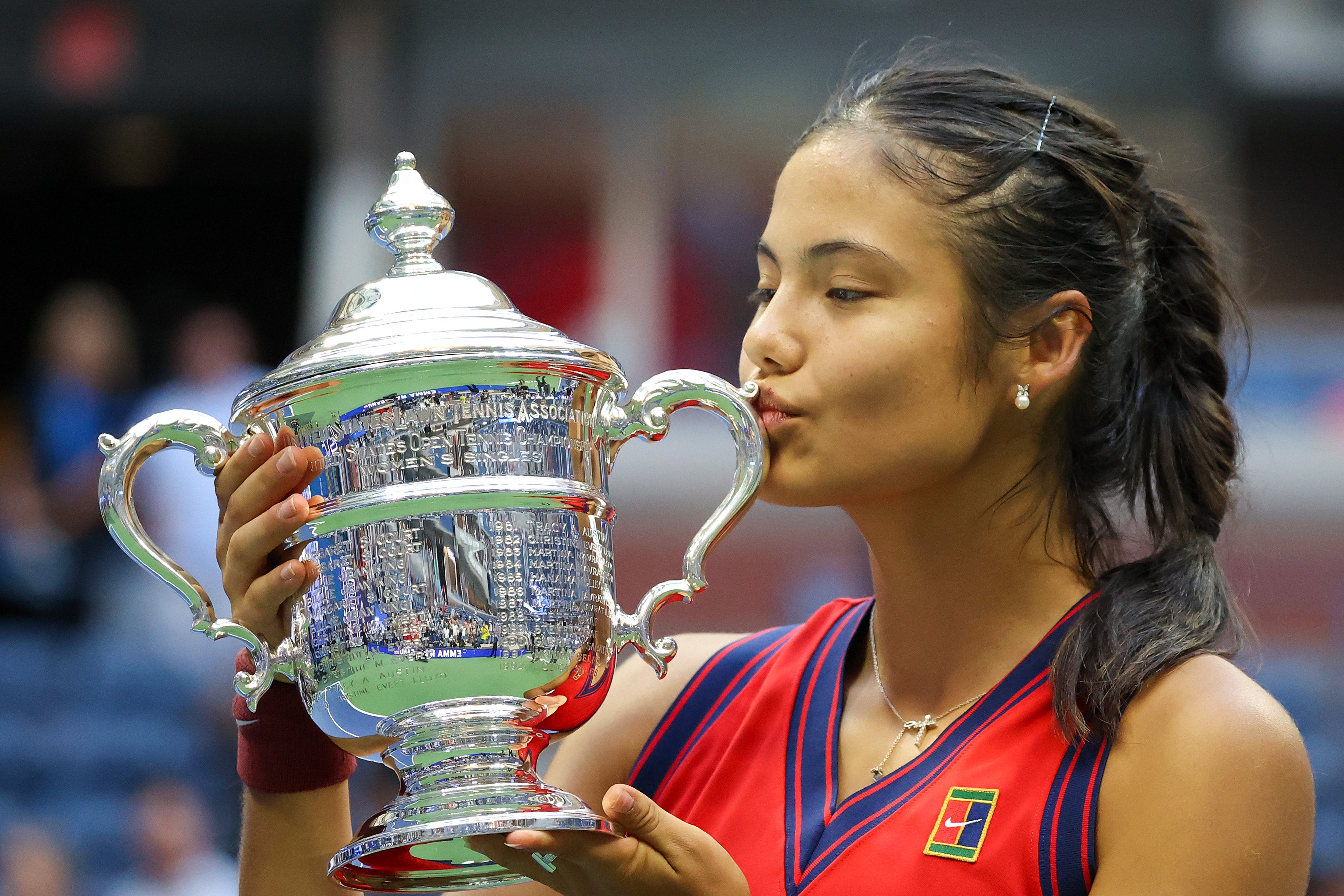
“It’s almost like you’re not allowed to lose a match. I hope we and the media can give her the space and time so she can flourish as a person and a tennis player, because she’s been in the spotlight so young. You’ve seen Naomi [Osaka] go through this too – a lot of players have it and it can be really damaging and even break them for the rest of their lives.
“But these girls… it goes past tennis. They transcend the sport.”
Dokic reveals that numerous journalists apologised to her in the aftermath of her abuse being made public; she is thankful for it, and for “turning the conversation and story into a positive”.
She is also forthright and honest with her strong support for a joint professional tennis tour, encompassing both men and women. “We are stronger together,” she emphasises. “It’d help so many players moving forward if we were united.”
Appropriately timed, too, as she heads off this week to the season-starting United Cup (formerly Hopman Cup) in Perth, a rare event that sees men and women from the same country compete as one team. And when it comes to equality in tennis, she is full of praise for one man in particular.
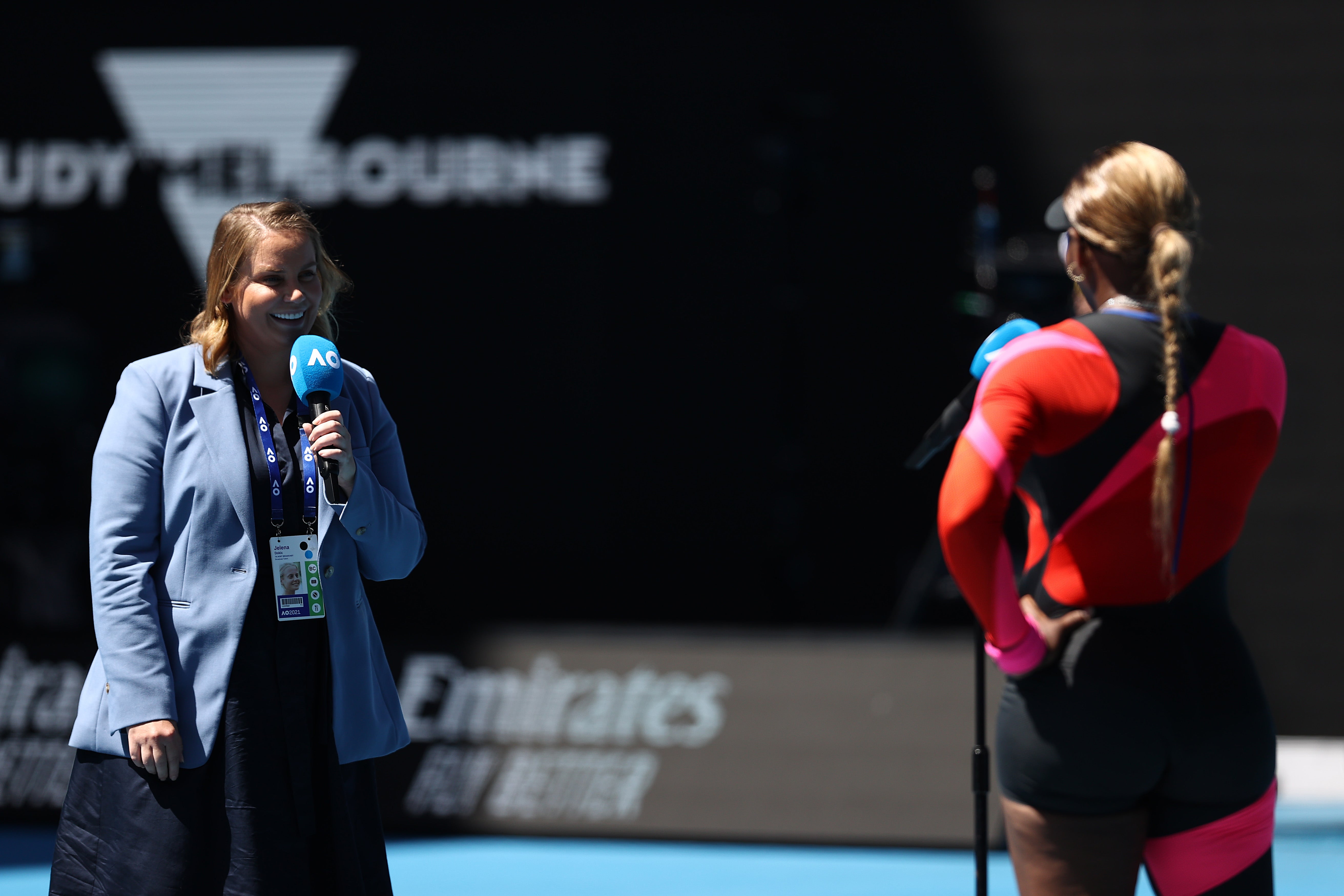
“Andy Murray is the leader and pioneer when it comes to equality,” she says. “When Amelie Mauresmo started coaching Andy [in 2014], she was scrutinised and attacked. Andy had to keep coming out and defending her – why did he have to do that? To stand up against every person who said one bad word about her – it did change things.”
To the future: Dokic’s past means she doesn’t look too far ahead. She doesn’t rule out coaching down the line but having just released her second book, Fearless, she wants to write more – including a children’s “self-help” book – and continue to evolve as a broadcaster. Yet to sign off, she has a message for those going through tough times – in sport and in life.
“I’m in a phase of my life where I just want to live free. No stress, no feeling like something is holding me back,” she says.
“Tennis is a brutal individual sport. Perfection does not exist, it’s not attainable and it puts a lot of pressure on athletes for a long time. I want people everywhere to have hope. Any adversity you’re going through… just fight and believe. Focus on the future and don’t be defeated by the past.
“I was a victim of abuse. But it’s all about finding the power to thrive. Now I’m victim, survivor, thriver.”
Bookmark popover
Removed from bookmarks